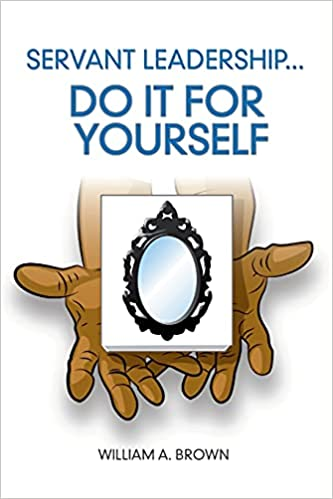Article-Detail

When The Game Seems Fixed
The first recorded international sporting contest pitted Bristol’s Tom Cribb vs. Tom Molineaux an African American freed slave from Georgetown, South Carolina in a bareknuckle boxing match for the ages. The date was December 18, 1810 and was a cold, rainy day, typical climate for the time of year in East Grinstead, Sussex.
At stake was a national pride and given the contrast of the fighters, people buzzed with excitement. Crib was the people’s champion, a national treasure, undisputed champion, and wealthy landowner. Molineaux sailed for Liverpool in 1809, earning his freedom in a “free-the-winner” fight with another slave. He earned a shot at the champ of England by destroying Tom “Tough” Blake in August 1810, knocking him out cold in 8 rounds. Once Molineaux was legitimized as a fighter, people began to get defensive and included race as a factor in the fight. One English writer warned Crib about his fate if he were to allow the championship to be held by a foreigner or, even worse, a moor.
The many story lines increased the prefight intensity. Rich vs. poor… black vs. white… American vs. English… by the day of the fight, the anticipation was overwhelming. Historians estimate 20,000 spectators braved the rain, ankle deep mud, and cold to see the fight.
Bareknuckle fights could last 40 rounds if neither fighter conceded defeat. The 30 year old Cribb, under trained, and over confident felt as if he would out finesse Molineux. He had no idea Molineux had won many fights representing his owner in the Carolinas then fought his way to New York where he proclaimed himself the Champion of America (the first person to make such a claim). In England, he sought out a highly respected coach who taught him the “sweet science” of boxing. At 26, he was bigger, faster, and well prepared for the unsuspecting Champion of England. Boxing historians describe the ninth round with Molineux’s fists being hammers and Cribb’s head, the anvil. It was the ninth round that Cribb was knocked out. Seeing this, the ring was stormed by fans who were disappointed by the outcome. The crowd interrupted the count, one fan harassed the referee, saying that Molineux had bullets in his hands making his fists harder.
With this time, Crib was able to regain his senses and get back to his feet while Molineux fought off the crowd that was trying to pull him out of the ring. He broke a finger before having to prove to the referee that he hadn’t had bullets in his hands. After roughly 15 minutes, the fight resumed. By this time Cribb, swollen but refreshed, had the advantage. To the delight of the crowd, Cribb finally defeated Molineux. The fans did not want to see a Molineux win the fight. He was a yank, a poor slave, a moor, unfit for the title, so they intervened to give their guy an advantage. The referee, “Gentleman” Jackson, who was likely biased too, let it happen.
People expect fairness and justice or an equal opportunity to succeed. When there is bias, favoritism, or tipped scales, people recognize their “unfair disadvantage” and feel hopeless. I distinguish “fair” and “unfair” disadvantage because there are factors out of your control that will be sometimes at play. A fair disadvantage would be times when you don’t hold certification necessary for the position. You will be passed over because you do not meet the minimum qualifications. Unfair disadvantage is when you are certified and competent and you don’t get an opportunity to make a case for yourself. Unfair disadvantage harms the person passed over, but it also harms the “favored” as people know that the deck was stacked in their favor, compromising trust which also harms the “biased decider”, who made the choice. When trust is compromised, discretionary effort given by the team is reduced leaving fewer people going beyond the call at work. The bigger danger is the resentment inherent in a biased decision. This causes infighting, undermining, and increased “unplanned” days off. Unplanned days off are days you take off when you are not on a vacation or sick. People who are not engaged at work take more “unplanned” days off. The infighting and undermining stresses the bosses and reduces efficiency, unplanned days off costs money, all of which keep leaders up at night.
Researchers at the University of East Anglia did a study on what they called ‘procedural justice’ and its impact on employee health. The procedures involved pay, promotion, rewards and assignments delegated. What researchers found was a direct connection between perceived fairness and self-reported health. What was also discovered was a link between fairness and the way people feel treated at work. In short, an unjust environment isn't limited these procedures, it's an indication of percieved mistreatment in other areas too. According to the report, "People who feel fairly treated are not only more likely to be motivated at work and go the extra mile for their organization, but they are also more likely to be healthy, have an active lifestyle and feel positive." The negative impact of unfairness isn't worth the favor extended.
When the game seems fixed, or is fixed in the case of the Cribb-Mullineux fight, everybody loses. Tom Molineux, dejected by defeat, fired his trainer and took his training less seriously. He got a rematch in September 1811 and its reported that he ate a whole chicken and drank a gallon of ale on the day of the fight. He was pummeled that day by a very prepared Tom Cribb. He did acquire fame and stature for his Rocky-like effort but it was short lived. He died at 33. His story should help us consider what happens when fairness comes second to who you like, who is loyal, or power. Great organizations share power, decisions and are open. It can be tempting to make decisions that please allies, however, good leaders make allies out of the masses. It’s the masses that determine your success, and ultimately, your tenure.
I wrote an article in December of 2018, Perception is Reality, which describes a fairness study involving monkeys. The findings match those found at the University of East Anglia. If you want a better organization or team, play fair. If you have to make a decision that seems biased, be open about it. Leaders have the authority to make decisions, when you’re not straight about your decisions, you diminish yourself as a leader. Leadership is difficult, when you accept a leadership role, you accept all of the difficulties that come with it. Play fair and your team will SOAR!
William A. Brown
October 27, 2019
https://boxrec.com/media/index.php/Tom_Cribb_vs._Tom_Molineaux_(1st_meeting)
https://www.theguardian.com/sport/blog/2010/dec/15/bareknuckle-boxing-frank-keating
https://www.sciencedaily.com/releases/2016/05/160510213323.htm




